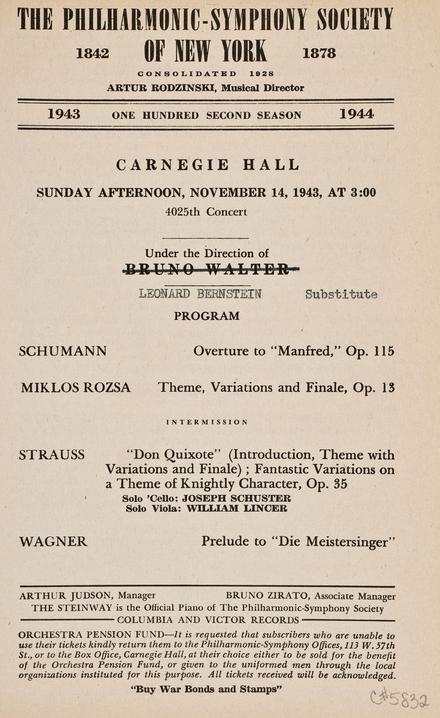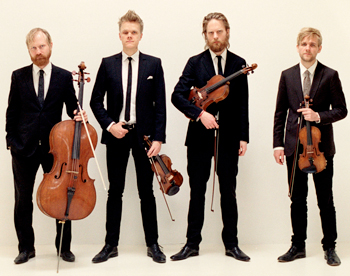by Daniel Hathaway
At Noon, harpsichordist Mikhail Grazhdanov will play works by Louis Couperin, J.H. D’Anglebert’& J.S. Bach at the Church of the Covenant.
And tonight at 7:30 at Disciples Cultural Arts Center, the Danish String Quartet will perform on the Cleveland Chamber Music Series.
EDITOR’S NOTEBOOK:
The last two visits the Danish String Quartet planned for Cleveland were not without incident. In 2022, the concert scheduled for January 25 was canceled due to positive COVID-19 test results from one of the performers. Before that, the quartet’s 2017 concert got off to a late start because its cellist was delayed.
As I wrote in a review, “What’s a string quartet to do when their cellist is running late for a concert? Vamp until ready, of course. Before their October 10 debut on the Cleveland Chamber Music Society Series, Danish String Quartet violist Asbjørn Nørgaard and violinist Rune Tonsgaard Sørensen entertained the audience with an informative little off-the-cuff pre-concert lecture, charmingly laced with dry Danish humor and musical examples.
“Some fifteen minutes later, once Fredrik Schøyen Slölin had arrived (“he’s changing clothes in the back seat of a car,” they quipped) they joined him and violinist Frederik Øland in a brilliantly-played program of Bartók, Nordic folk music, and Beethoven that drew wild cheers and foot stomping in the balconies from an audience well-supplied with young fans. It would be difficult to imagine a more auspicious way to begin a chamber music season.”
Tonight, the Quartet will feature works by Mozart, Thomas Adès & Benjamin Britten, plus folk music, on their 7:30 concert at Disciples Cultural Arts Center (note to subscribers: this is a change of venue!)
It would be worthwhile to arrive by 6:30 to enjoy a 30-minute pre-concert talk and interview led by ClevelandClassical.com correspondent Kevin McLaughlin, who recently retired as music librarian at the Cleveland Institute of Music. He’ll describe each piece briefly, then ask the members questions:
- What led to the quartet’s formation? Has it had the same personnel for 20+ years?
- How and when do they rehearse? Is there a leader, or are they essentially democratic?
- What has changed over 20+ years? Audiences? Repertoire? How did they choose this particular program?
McLaughlin plans to ask them to address aspects of each piece: Mozart, Adès, Britten, and folk selections (the latter seem to be a specialty of theirs), and to invite audience questions.
For details of these and other events, visit our Concert Listings.
INTERESTING READS:
The Concerned Students of CIM have shared with ClevelandClassical.com the text of the document they sent to the Board of Trustees of the Cleveland Institute of Music on October 15, noting that “The attached petition was student written and has the support of 200 current student signatures.”
Cuyahoga Arts & Culture. In today’s edition of Cleveland.com, Steven Litt writes that “The campaign to increase Cuyahoga County’s cigarette tax for the arts is on hold at a critical moment because of rising community discontent over the public agency charged with distributing more than $11 million a year in revenues.
“Fred Bidwell, a philanthropist and highly visible arts leader, announced in an op-ed article published Sunday by cleveland.com and The Plain Dealer that the nonprofit Assembly for Action, the political action committee devoted to raising $1.5 million for a new levy campaign, was pausing its efforts.”
TODAY’S ALMANAC:
On November 14, 1900, American composer Aaron Copland was born in Brooklyn, New York. His career was permanently bound up with that of his student, composer and conductor Leonard Bernstein. The two met for the first time on November 14, 1937 in New York on Copland’s 37th birthday.
November 14 turns out to have been the date for several more milestones in Bernstein’s (and Copland’s) life.

And on November 14, 1980 in Washington, D.C., Bernstein conducted the National Symphony in a tribute to Copland on the composer’s 80th birthday. On the program: Copland’s Lincoln Portrait with Copland as narrator.
Finally, on November 14, 1990, “A Concert Remembering Lennie” at New York’s Carnegie Hall, memorialized Bernstein a month after his death. The participants included cellist Mstislav Rostropovich, baritones Thomas Hampson & Chester Ludgin, soprano Clamma Dale, soprano, mezzo-sopranos Marilyn Horne & Christa Ludwig, tenor, Jerry Hadley, speaker Jamie Bernstein, narrators Lauren Bacall, Nina Bernstein, Schuyler Chapin & Alexander Bernstein, the Westminster Choir, the New York Philharmonic with musicians from the Boston Symphony, the Israel Philharmonic, the London Symphony, the Vienna Philharmonic & the Santa Cecilia Orchestra, led by conductors Michael Tilson Thomas, Michael Barrett, Christoph Eschenbach & James Levine.
Introducing Maestro, the new film about Bernstein, CBS Sunday Morning correspondent Mo Rocca “talks with Bradley Cooper, the movie’s star, co-writer, producer and director, about playing one of the most charismatic and controversial musical figures of the 20th century. He also talks with Bernstein’s children (Jamie Bernstein, Nina Bernstein Simmons, and Alexander Bernstein) about the life and legacy of their father being brought to the screen.” Watch the story here.



